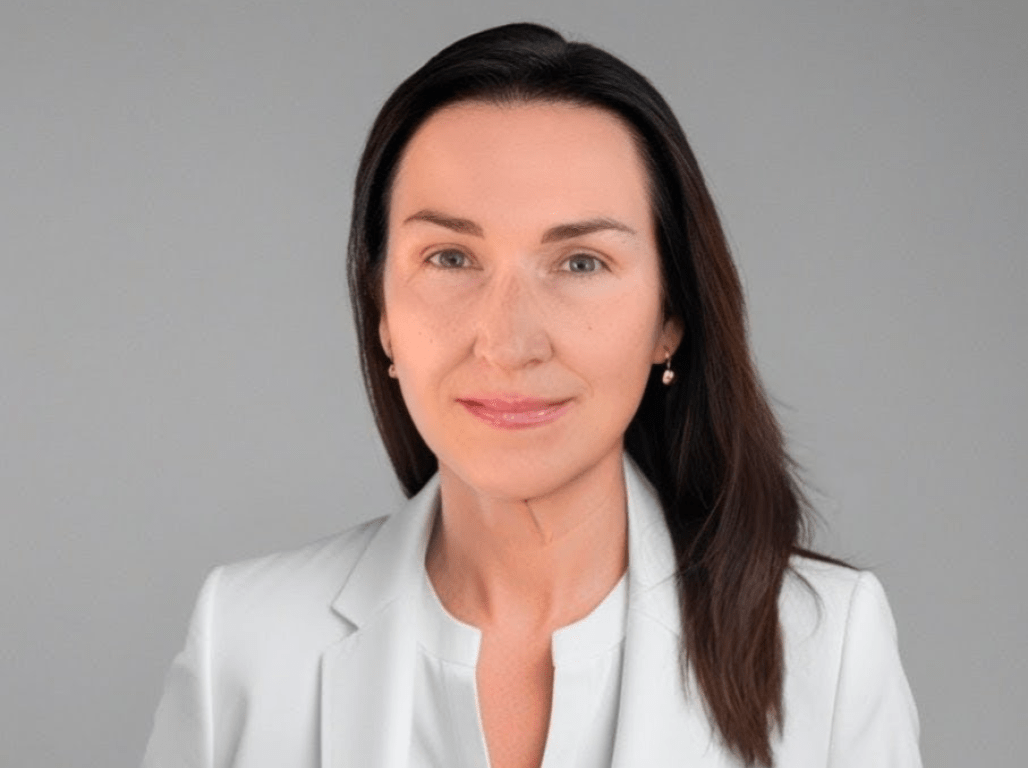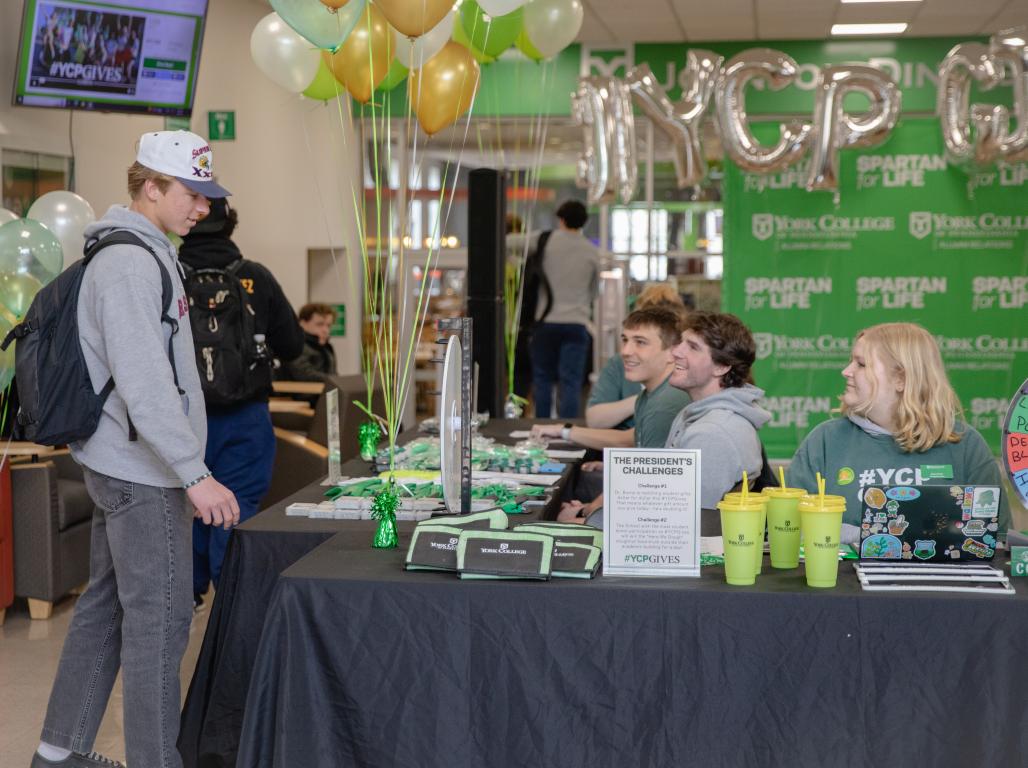Q&A with York College's Incoming President

In July, York College of Pennsylvania welcomed Dr. Thomas D. Burns as its new leader.
Dr. Thomas D. Burns stepped into the position of President of York College of Pennsylvania in July. He brings to the post a wealth of experience and a passion for education and service.
As a highly accomplished academic, Dr. Burns has spent many years in leadership roles at institutions of higher learning and has earned a reputation as a visionary committed to academic excellence and student success. In this Q&A, we will delve into Dr. Burns' background and his vision and plans for York College.
Dr. Burns, who is joined by wife Margret Burns, a Ph.D. graduate in chemistry, is excited to lead York College into a new era of academic achievement and community involvement.
Q. When you began in academia, was your goal to end up as president of a college? What led you in this direction?
A. I went to college because I thought I wanted to become a dentist. Since you can’t major in dentistry at the undergraduate level, I chose to major in Chemistry. I realized pretty early on that I didn’t do well with blood, which is probably a prerequisite for most medical majors, so I had to find a different career.
Q. What drew you to York College?
A. York College has always been in my sphere of reference. I went to college at Dickinson [Carlisle, PA], worked at Millersville [University], and grew up in Delaware, so I’ve had lots of opportunities to see York from the outside. I’ve also had family attend the College and they’ve had a fantastic experience. It’s a place that I’m really excited to grow with.
Q. Why is this position important to you?
A. First, what I see at York College is a place that authentically cares about students and student success. At many places, when you dig deeper, you find that they are not truly focused on students and their outcomes. But at York I’ve been delighted to see how deeply and genuinely faculty and staff care about student success. It is powerful when a president can honestly tell future students and their parents that our faculty and staff care about our students.
Second, I believe college education serves a dual purpose: individual growth as well as developing a connection to something greater than yourself. College is about preparing students to become successful citizens and developing a commitment to community involvement. At York College, I see a place deeply connected with community engagement, involvement, and growth that is helping to prepare the next generation of citizen leaders
Third, I have been impressed by the commitment that the York faculty and staff show every day as they seek out places where students can take what they learn in the classroom and lab and put that into practice in society. If students are not given the chance to practice what they learn when they are in college, then it’s going to be more difficult to do so after they graduate. I love how York College combines developing a student’s knowledge, skills, and abilities with the practice of community engagement.
Q. What has best prepared you for this position?
A. My time as Provost of Belmont University has been exceptionally good preparation. Belmont sees itself as a member of the community and as an institution that needs to create opportunities for the community in which it is located. When I helped create a new major at Belmont, the first question I asked is, ‘how does it serve Nashville [TN]?’ The university grew rapidly during my time as Provost but Belmont hasn’t forgotten that the institution will be most successful when it creates programs that support students and the community.
I see that at York College as well. The faculty and staff are deeply committed to their support of both our students and our community. I know that our faculty and staff understand that if we are not trying to create opportunities for students, then we are not really fulfilling what we are here to do. That’s a model I’ve been able to use to help students, faculty, and staff thrive at Belmont, and I want to bring my passion, vision, and energy to that conversation at York College. For me that means that I need to not only ask the question of parents and students, ‘what matters to you’ but, also, ‘what does the community need?’
Q. What do you hope to accomplish as President?
A. It’s hard to say before you land, but certainly what I see are great opportunities for the institution, students, faculty, and staff. York College is a vibrant institution that can build on its strong foundation while also focusing on creating new opportunities and connections where students, faculty, staff, and alumni can all engage in putting learning into practice to serve our community. Our commitment to our students is to help them thrive; their commitment to us is to be fully engaged in their work and to figure out how they can make a difference in our world through the knowledge and skills they develop at York. I want all the members of the York College community to benefit from York, but also to find ways to then give back to the College and the community at large. I want students, as they enter the life of the campus, to take on the responsibility of helping to make sure that they are supporting their classmates to ensure that they can achieve their educational goals.
Q. What weighs on you most when you think about the future of York College?
A. In a post-pandemic world, I want to bring energy, excitement and joy to the conversation of how we re-engage in life together, how we move forward as a society, and how we work to make a difference in the communities where we live. I want to encourage our students and faculty to ask hard questions: Why are we here? Why do we do what we do? What do we love about it and how do we think differently about what education looks like? How do we help students curate the educational experience that best serves them?
Education used to be about professors providing students with information. Today, we are the guides who help students navigate an environment rich with information and learn how to evaluate, assess, and use that information well. Ultimately, we are here to help prepare students for the world of work by helping them utilize information well and with integrity. How do we make sure they are ready to do that? I want to infuse that conversation with energy and excitement.
Q. Have you been focused on serving the community throughout your career?
A. My service orientation began in college and has grown continuously through life and experiences. During my undergraduate studies, I was very involved on campus as an RA, on the swim team, and on various campus boards. That helped me understand college life but having been a faculty member and administrator, I now see that students often only know what we help them see. They come to college thinking about three or four jobs they’ve experienced. We help them understand how to take new experiences and explore new options.
Prior to going to college, between my junior and senior year of high school, I had the unique opportunity to be an exchange student in Japan for the summer. I went from suburban New Castle, DE, into a rural Japanese community where they’d never had an American living before, and I’d had four days of Japanese language instruction. It was a foundational experience. I realized that if I can survive this, I can survive anything. I also realized that if a community in Japan was willing to take me in and help me become part of their community, I could help others do the same wherever life placed me. That experience strengthened my commitment to live a life that was dedicated to serving others through helping them feel welcome and respected. I want students to make the most of their education, and that is not just classes. It’s connecting knowledge and abilities to help solve the deep problems of the world.
Q. How has working in academia changed you?
A. As a student I saw the faculty as the teachers. As I moved into academia as a member of the faculty, however, I realized that every member of the campus community is a teacher. We all teach, regardless of what our role in the academy is. We’re all on the campus to help students learn, grow, and, we hope, thrive. We are showing students what life looks like and how knowledge can come from many sources and be used in many ways. For me, I’ve found most joy and success in being a person who helps give students opportunities. I pursued my Ph.D. so I could help students discover their passions and make a life out of turning those passions into career experiences. I have always seen my role as being the connector or glue to help students make sense of the puzzle pieces we are giving them. I want to help people know what opportunities are available to them in life.
As an example, when I started at Belmont, less than 200 students studied abroad each year. Just prior to the pandemic, there were over 1,000 students studying abroad each year. Knowing how studying abroad was transformational for me, I wanted to find ways to encourage students to participate in a similar experience, but if we don’t talk about it, students and parents don’t plan for it, and if they don’t plan for it, it doesn’t happen. The way Belmont moved the needle on this was to focus on creating short-term faculty-led study abroad trips to make these experiences less daunting for first-generation students. We then intentionally wove conversations about study abroad into recruitment materials, campus visits, and orientation so that we would talk about these opportunities with students and families so they could plan for them. We talked about the benefits of study-abroad experiences like increasing cultural competence and confidence and bringing that broader knowledge and experience to bear on career preparation and service to the community. Internships are similar in that they help students realize what they do or don’t want to do. With planning, we can create expectations and opportunities and put students in places that challenge their comfort and expand their knowledge and experience.
Q. What do you hope readers take away from your story?
A. I want them to hear my passion for York College. This is the place I want to be. This is the place I’m excited to be. This is a place that changes lives and it is a privilege to be part of this community. What York College is really committed to is helping students find out who they are and what they want to do, and then helping them do it. I have worked at many other places, but I didn’t feel the same energy and excitement about student and campus success that I feel about York College. That’s just contagious. I am excited to be a champion for York College, telling the stories about our campus to help others find their way to, and their place in, our community. Ph



